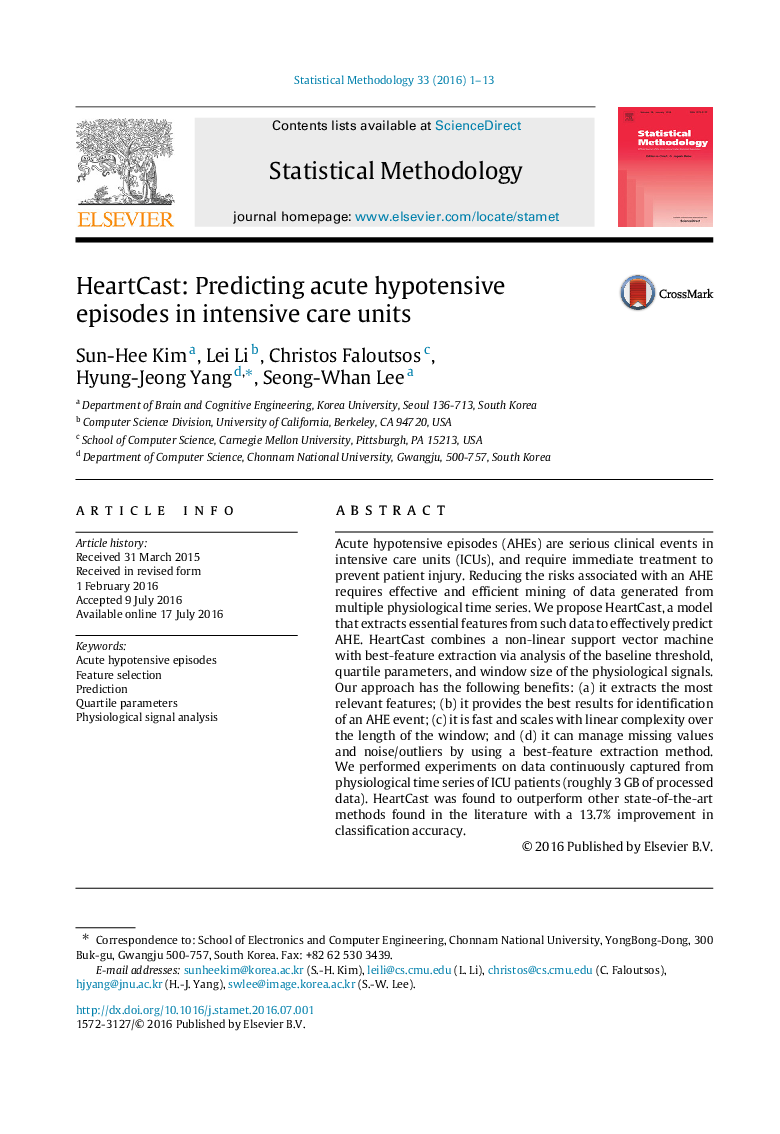| Article ID | Journal | Published Year | Pages | File Type |
|---|---|---|---|---|
| 1150808 | Statistical Methodology | 2016 | 13 Pages |
Acute hypotensive episodes (AHEs) are serious clinical events in intensive care units (ICUs), and require immediate treatment to prevent patient injury. Reducing the risks associated with an AHE requires effective and efficient mining of data generated from multiple physiological time series. We propose HeartCast, a model that extracts essential features from such data to effectively predict AHE. HeartCast combines a non-linear support vector machine with best-feature extraction via analysis of the baseline threshold, quartile parameters, and window size of the physiological signals. Our approach has the following benefits: (a) it extracts the most relevant features; (b) it provides the best results for identification of an AHE event; (c) it is fast and scales with linear complexity over the length of the window; and (d) it can manage missing values and noise/outliers by using a best-feature extraction method. We performed experiments on data continuously captured from physiological time series of ICU patients (roughly 3 GB of processed data). HeartCast was found to outperform other state-of-the-art methods found in the literature with a 13.7% improvement in classification accuracy.
